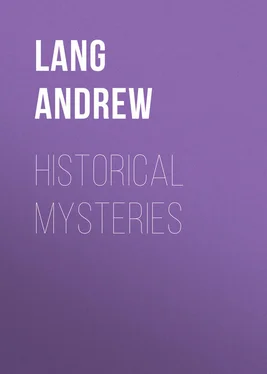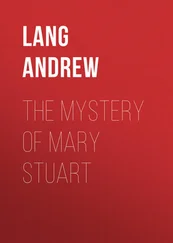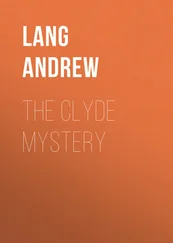Andrew Lang - Historical Mysteries
Здесь есть возможность читать онлайн «Andrew Lang - Historical Mysteries» — ознакомительный отрывок электронной книги совершенно бесплатно, а после прочтения отрывка купить полную версию. В некоторых случаях можно слушать аудио, скачать через торрент в формате fb2 и присутствует краткое содержание. Жанр: foreign_antique, foreign_prose, на английском языке. Описание произведения, (предисловие) а так же отзывы посетителей доступны на портале библиотеки ЛибКат.
- Название:Historical Mysteries
- Автор:
- Жанр:
- Год:неизвестен
- ISBN:нет данных
- Рейтинг книги:5 / 5. Голосов: 1
-
Избранное:Добавить в избранное
- Отзывы:
-
Ваша оценка:
- 100
- 1
- 2
- 3
- 4
- 5
Historical Mysteries: краткое содержание, описание и аннотация
Предлагаем к чтению аннотацию, описание, краткое содержание или предисловие (зависит от того, что написал сам автор книги «Historical Mysteries»). Если вы не нашли необходимую информацию о книге — напишите в комментариях, мы постараемся отыскать её.
Historical Mysteries — читать онлайн ознакомительный отрывок
Ниже представлен текст книги, разбитый по страницам. Система сохранения места последней прочитанной страницы, позволяет с удобством читать онлайн бесплатно книгу «Historical Mysteries», без необходимости каждый раз заново искать на чём Вы остановились. Поставьте закладку, и сможете в любой момент перейти на страницу, на которой закончили чтение.
Интервал:
Закладка:
That Elizabeth could live for a month on a loaf did not surprise Mrs. Canning. 'When things were very hard with her,' said Mrs. Canning, 'the child had lived on half a roll a day.' This is that other touch which, with the story of the farthing, helps to make me a partisan of Elizabeth.
Mr. Davy said that on January 31, before Chitty, Elizabeth 'did not pretend to certainty' about Mrs. Wells. She never did at any time; she neither knew, nor affected to know, anything about Mrs. Wells. She had only seen a tall, swarthy woman, a dark girl, and a fair girl, whom she recognised in the gipsy, her daughter, and Virtue Hall. Mr. Davy preferred Nash's evidence to that of all the neighbours, and even to Chitty's notes, when Nash and Chitty varied. Mr. Davy said that Nash 'withdrew his assistance' after the visit to the house. It was proved, we saw, by his letter of February 10, that he did not withdraw his assistance, which, like that of Mr. Tracy Tupman, took the form of hoping that other people would subscribe money.
Certain varieties of statement as to the time when Elizabeth finished the water proved fatal, and the penthouse of Chitty's notes was played for all that it was worth. It was alleged, as matter of fact, that Adamson brought the broken pitcher into the house – this by Mr. Willes, later Solicitor-General. Now, for three months before February 1, Adamson had not seen Elizabeth Canning, nor had he heard her description of the room. He was riding, and could not carry a gallon pitcher in his coat pocket. He could not carry it in John Gilpin's fashion; and, whatever else was denied, it was admitted that from the first Elizabeth mentioned the pitcher. The statement of Mr. Willes, that Adamson brought in the pitcher, was one that no barrister should have made.
The Natus pair were now brought in to say that they slept in the loft during the time that Elizabeth said she was there. As a reason for not giving evidence at the gipsy's trial, they alleged fear of the mob, as we saw.
The witnesses for the gipsy's alibi were called. Mrs. Hopkins, of South Parrot, Dorset, was not very confident that she had seen the gipsy at her inn on December 29, 1752. She, if Mary Squires she was, told Mrs. Hopkins that they 'sold hardware'; in fact they sold soft ware, smuggled nankin and other stuffs. Alice Farnham recognised the gipsies, whom she had seen after New Christmas (new style). 'They said they would come to see me after the Old Christmas holidays' – which is unlikely!
Lucy Squires, the daughter, was clean, well dressed, and, teste Mr. Davy, she was pretty. She was not called.
George Squires was next examined. He had been well tutored as to what he did after December 29, but could not tell where he was on Christmas Day, four days earlier! His memory only existed from the hour when he arrived at Mrs. Hopkins's inn, at South Parrot (December 29, 1752). His own counsel must have been amazed; but in cross-examination Mr. Morton showed that, for all time up to December 29, 1752, George's memory was an utter blank. On January 1, George dined, he said, at Abbotsbury, with one Clarke, a sweetheart of his sister. They had two boiled fowls. But Clarke said they had only 'a part of a fowl between them.' There was such a discrepancy of evidence here as to time on the part of one of the gipsy's witnesses that Mr. Davy told him he was drunk. Yet he persisted that he kissed Lucy Squires, at an hour when Lucy, to suit the case, could not have been present.
There was documentary evidence – a letter of Lucy to Clarke, from Basingstoke. It was dated January 18, 1753, but the figure after 175 was torn off the postmark; that was the only injury to the letter. Had there not been a battalion of as hard swearers to the presence of the gipsies at Enfield in December-January 1752-1753 as there was to their absence from Enfield and to their presence in Dorset, the gipsy party would have proved their case. As matters stand, we must remember that the Dorset evidence had been organised by a solicitor, that the route was one which the Squires party habitually used; that by the confession of Mr. Davy, the prosecuting counsel, the Squires family 'stood in' with the smuggling interest, compact and unscrupulous. They were 'gipsies dealing in smuggled goods,' said Mr. Davy. Again, while George Squires had been taught his lesson like a parrot, the prosecution dared not call his sister, pretty Lucy, as a witness. They said that George was 'stupid,' but that Lucy was much more dull. The more stupid was George, the less unlikely was he to kidnap Elizabeth Canning as prize of war after robbing her. But she did not swear to him.
As to the presence of the gipsies at Mrs. Wells's, at Enfield, as early as January 19, Mrs. Howard swore. Her husband lived on his own property, and her house, with a well, which she allowed the villagers to use, was opposite Mrs. Wells's. Mrs. Howard had seen the gipsy girl at the well, and been curtsied to by her, at a distance of three or four yards. She had heard earlier from her servants of the arrival of the gipsies, and had 'looked wishfully,' or earnestly, at them. She was not so positive as to Mary Squires, whom she had seen at a greater distance.
William Headland swore to seeing Mary Squires on January 9; he fixed the date by a market-day. Also, on the 12th, he saw her in Mrs. Wells's house. He picked up a blood-stained piece of thin lead under the window from which Elizabeth escaped, and took it to his mother, who corroborated. Samuel Story, who knew Mary Squires from of old, saw her on December 22 in White Webs Lane, so called from the old house noted as a meeting-place of the Gunpowder Plot conspirators. Story was a retired clockmaker. Mr. Smith, a tenant of the Duke of Portland, saw Mary Squires in his cowhouse on December 15, 1752. She wanted leave to camp there, as she had done in other years. The gipsies then lost a pony. Several witnesses swore to this, and one swore to conversations with Mary Squires about the pony. She gave her name, and said that it was on the clog by which the beast was tethered.
Loomworth Dane swore to Mary Squires, whom he had observed so closely as to note a great hole in the heel of her stocking. The date was Old Christmas Day, 1752. Dane was landlord of the Bell, at Enfield, and a maker of horse-collars. Sarah Star, whose house was next to Mrs. Wells's, saw Mary Squires in her own house on January 18 or 19; Mary wanted to buy pork, and hung about for three-quarters of an hour, offering to tell fortunes. Mrs. Star got rid of her by a present of some pig's flesh. She fixed the date by a document which she had given to Miles, a solicitor; it was not in court. James Pratt swore to talk with Mary Squires before Christmas as to her lost pony; she had then a man with her. He was asked to look round the court to see if the man was present, whereon George Squires ducked his head, and was rebuked by the prosecuting counsel, Mr. Davy, who said 'It does not look well.' It was hardly the demeanour of conscious innocence. But Pratt would not swear to him. Mary Squires told Pratt that she would consult 'a cunning-man about the lost pony,' and Mr. Nares foolishly asked why a cunning woman should consult a cunning man? 'One black fellow will often tell you that he can and does something magical, whilst all the time he is perfectly aware that he cannot, and yet firmly believes that some other man can really do it.' So write Messrs. Spencer and Gillen in their excellent book on The Native Tribes of Central Australia (p. 130); and so it was with the gipsy, who, though a 'wise woman,' believed in a 'wise man.'
This witness (Pratt) said, with great emphasis: 'Upon my oath, that is the woman… I am positive in my conscience, and I am sure that it was no other woman; this is the woman I saw at that blessed time.' Moreover, she gave him her name as the name on the clog of the lost pony. The affair of the pony was just what would impress a man like Pratt, and, on the gipsies' own version, they had no pony with them in their march from Dorset.
Читать дальшеИнтервал:
Закладка:
Похожие книги на «Historical Mysteries»
Представляем Вашему вниманию похожие книги на «Historical Mysteries» списком для выбора. Мы отобрали схожую по названию и смыслу литературу в надежде предоставить читателям больше вариантов отыскать новые, интересные, ещё непрочитанные произведения.
Обсуждение, отзывы о книге «Historical Mysteries» и просто собственные мнения читателей. Оставьте ваши комментарии, напишите, что Вы думаете о произведении, его смысле или главных героях. Укажите что конкретно понравилось, а что нет, и почему Вы так считаете.












